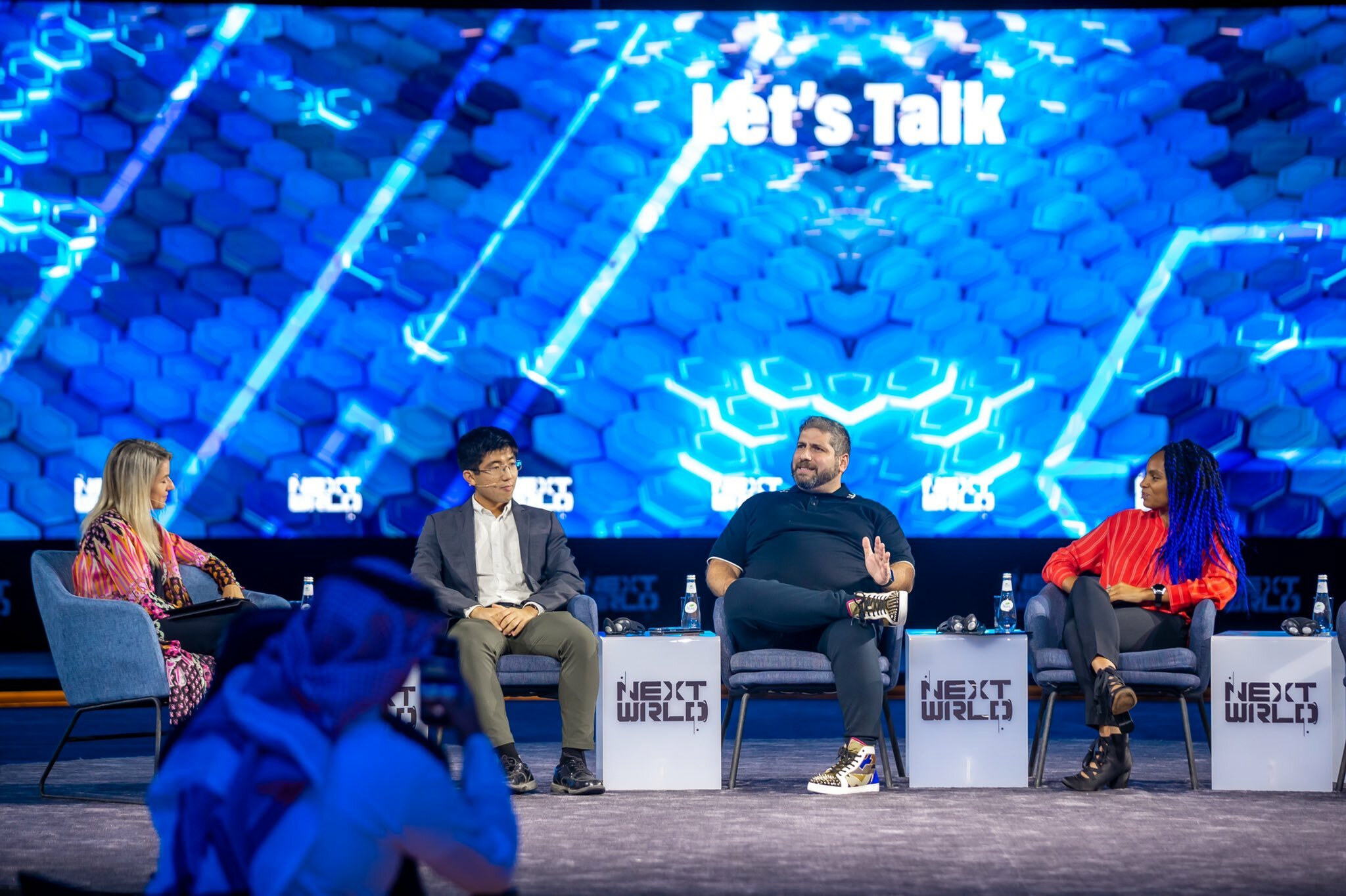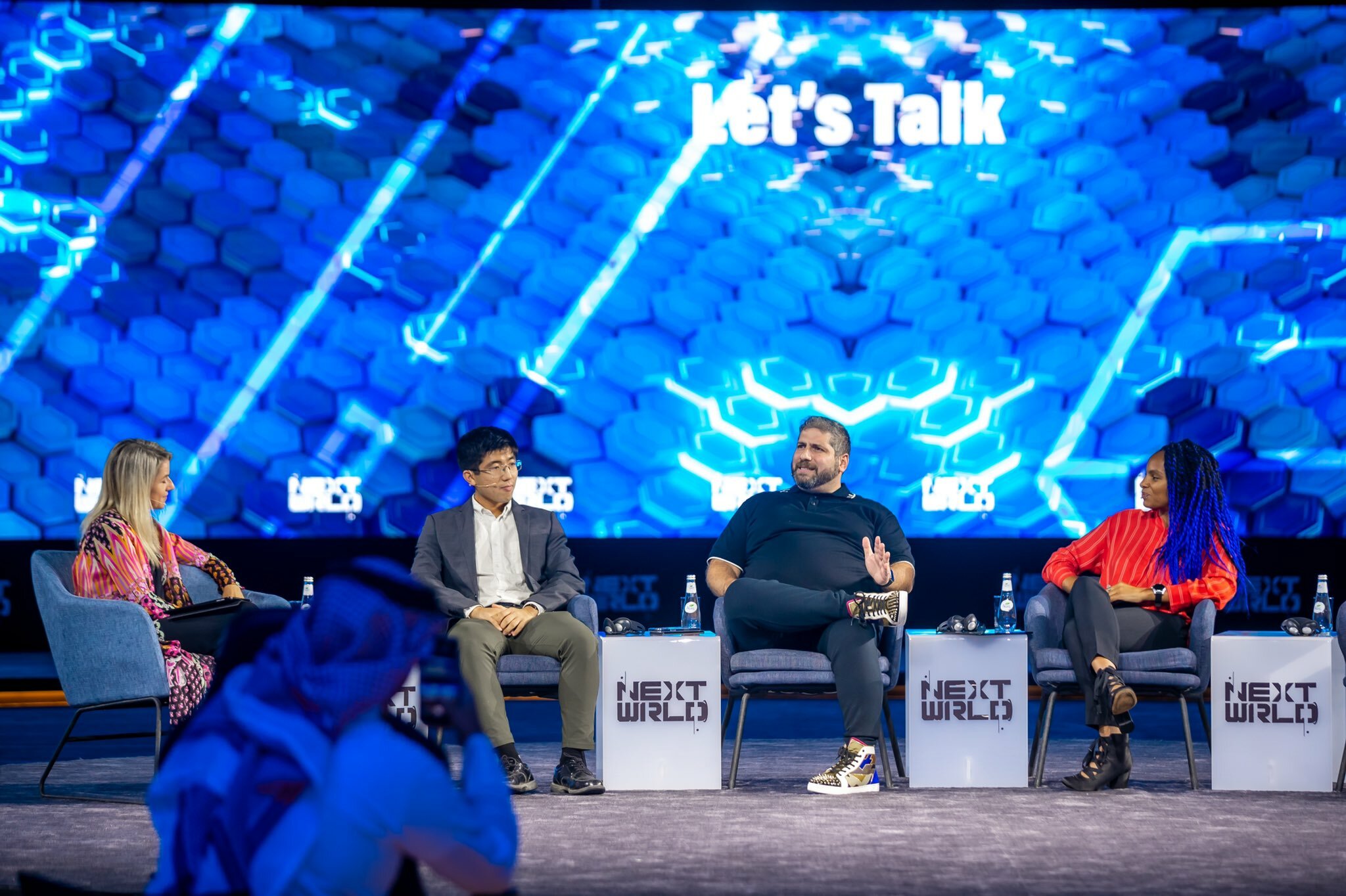The Next World Forum has just taken place in Riyadh, and tons of topics about the future of gaming and esports were discussed. Here were our highlights from the event.

The Next World Forum was a conference held in Riyadh in September 2022, and it features speakers from all around the world. The NWF was focused on the future of gaming and esports, both from a positive economic sense, but also with an eye to the possibly negative consequences of gaming. There were dozens of fascinating discussions but in this article we want to highlight the topics we found most compelling.
You can find our three favorite discussions from the event below.
Futuregazing – The Metaverse in the Spotlight
On the morning of the first day we were entreated to a fascinating discussion on the Metaverse and the future of gaming and consumption. The metaverse, for those unaware, is a hypothetical imagining of the internet as a single, connected, virtual-world, and the speakers had a lot to say on the subject.
The panel suggested that the metaverse was effectively going to be "the third act of the internet" and would be built by game developers rather than web-developers. Chong Geng Ng refined the point by suggesting that it was easier to visualize the metaverse as a connection of smaller worlds with one another, like those from the Matrix or World of Warcraft.
The most revealing part of the discussion came when the panel moved on to the commercial opportunities a metaverse-style model could offer. They spoke about how Fortnite now offered in-game concerts, and how real-world products would begin being advertised in the virtual world. Of course, they also mentioned the limitations of the metaverse as well, which were namely: the cost of content creation and the likelihood of users being unsatisfied with completely virtual experiences.
It's easy to look at a concept like the Metaverse and find it disconcerting, but these experts did much to assuage our fears. We recommend checking out the discussion if you're interested in the future of networking technology:
Whose Ecosystem is it Anyway? Deconstructing Ownership in Gaming and Esports
This talk was one of our favorites because it spoke about collaborative efforts rather than competition. More often than not, when we hear about gaming and esports we're talking almost exclusively about a publisher controlled space, but in this talk they suggested a different approach. It was about moving away from traditional ideas of ownership in gaming.
Turki Al Fawzan offered real insight into the local market during this talk, and it was completely enlightening for us to hear just how great the demand for gaming and esports was in Saudi Arabia. In fact, as he mentioned, and a whopping two thirds of the population of Saudi Arabia are gamers, which is an astonishingly high proportion. And it's that community who were really driving the economics of the local esports scene rather than publishers.
One of the most interesting points they discussed in this talk was the challenges to the industry that publishers pose with their desire to control intellectual property and esports. They spoke about how the future was going to depend on collaboration between these publishers rather than competition. This wasn't just about being collaborative for its own sake, but about the future business opportunities that this could provide for all.
If you're interested in the global market as it relates to gaming then check it out:
What Matters Now and in the Future – Amplifying Gaming for Good
On the opening of the second day we heard about some of the problems for well-being posed by gaming. This was a really bold and quite unexpected subject for discussion, but it helped show how open the forum was to a diversity of opinions. Of course everyone in
Abdullah Al Rashid opened the discussion with some hard-truths, and spoke about the addictive quality of gaming. He mentioned that of all the world's gamers who have actively tried to quit, two thirds have only been able to last a week before relapsing. That paints a far more extreme picture of video game addiction than many of us had heard before.
There was lots of discussion about the positives that gaming can also create, either by redirecting profits to good causes or in the purpose of education. But here Abdullah Al Rashid was keen to remind us again that despite these good efforts gaming cannot be allowed to go on completely uncontrolled. He raised the point that 1 in 5 people around the world have experienced bullying via online gaming, and also that 25% of individuals who game experience clinical symptoms, from simple headaches to more serious conditions. The exact logistics of how gaming would be policed weren't explained, but it was nonetheless a compelling argument.
If you're open to learning about some of the negatives of gaming then we can highly recommend this talk:
And those were our highlights from the Next World Forum. Hopefully this is an event we can revisit in the future, but we've certainly been given enough food for thought to satisfy us for now. Let us know your thoughts on these discussions in the comments below, we always like to hear the perspectives of our readers.






























